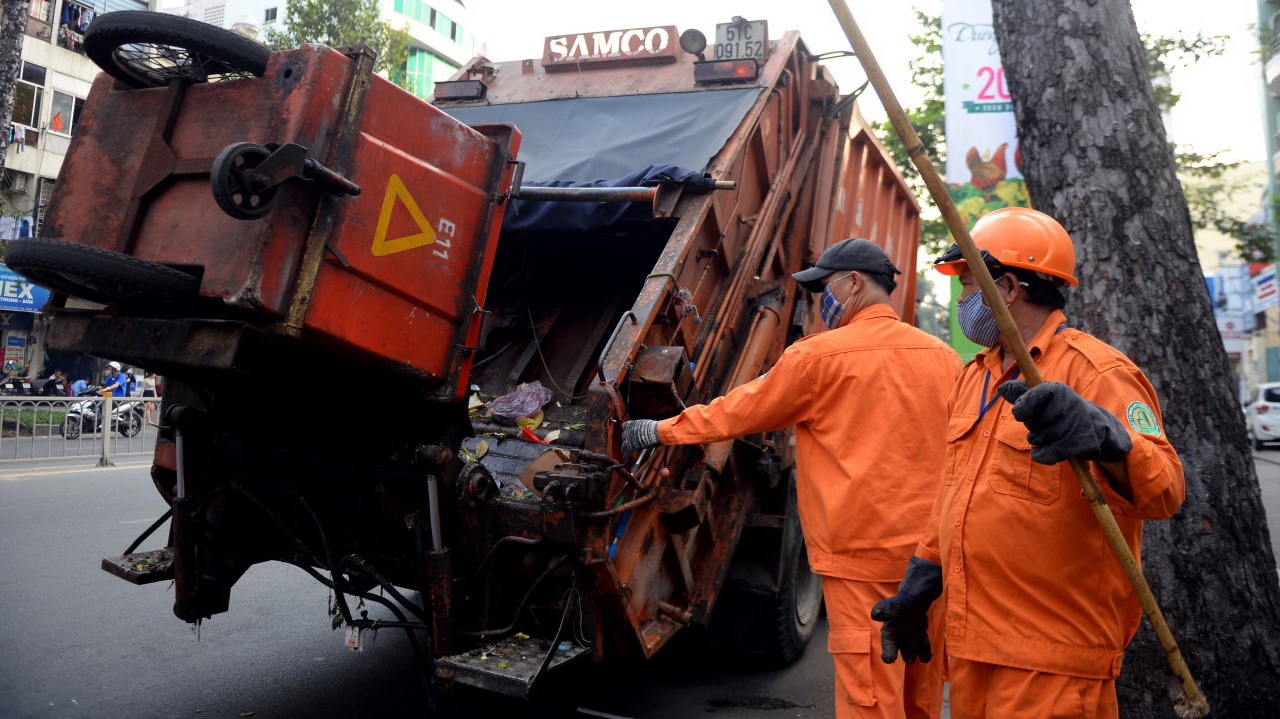Ho Chi Minh City residents may soon bear the costs of garbage transport and treatment, according to a draft plan proposed on Wednesday by the city’s environment department.
Residents are currently required to pay a small garbage collection fee of VND10,000-20,000 (US$0.45-0.9) per month, while the majority of garbage transport and treatment costs are subsidized by the government.
The municipal Department of Natural Resources and Environment (DONRE) made the announcement to change the current pricing system on Wednesday at a seminar to seek feedback on the proposal, which looks to both increase the current price of garbage collection and introduce new pricing schemes for garbage collection and treatment.
The proposal dictates that each household’s garbage collection fees will be calculated based on the average garbage disposal rate of 0.8 kilograms per person a day, as stipulated in a 2010 standard set issued by the Ministry of Construction.
Accordingly, each household will pay VND31,200 ($1.39) per month for garbage collection if the garbage is collected using rudimentary vehicles and VND36,000 ($1.61) if motorized vehicles are involved.
DONRE proposed that starting this year households pay a part of garbage transport costs, at VND9,480 ($0.42) a month, and from 2018 they will cover the full cost of VND49,560 ($2.21) per household.

Garbage collectors gather at a collection point on Nguyen Thai Binh Street, Go Vap District, Ho Chi Minh City. Photo: Tuoi Tre
Residents will not have to worry about the cost of garbage treatment until 2020, according to the proposal, after which they will be charged VND57,000 ($2.54) per household every month.
In total, starting 2020 each household will be paying a maximum of VND142,560 ($6.36) a month in garbage disposal service charges.
However, experts at Wednesday’s seminar pointed out several shortcomings in the plan, mainly concerning its disregard for households’ locations and the actual amount of garbage disposal.
“There’s a significant difference in the distance garbage trucks must cover when collecting rubbish at inner-city households and those in the suburbs,” said lawyer Truong Thi Hoa. “We can’t charge them the same transport fees.”
Similarly, Dr. Pham Viet Thuan from the Vietnam Union of Science and Technology Associations criticized the plan’s presupposition that all households dispose of the same amount of garbage every month.
He said not every household throws away 120 kilograms of garbage a month as the plan suggests, and that to set a common fee would be unfair.
Like us on Facebook or follow us on Twitter to get the latest news about Vietnam!





















































